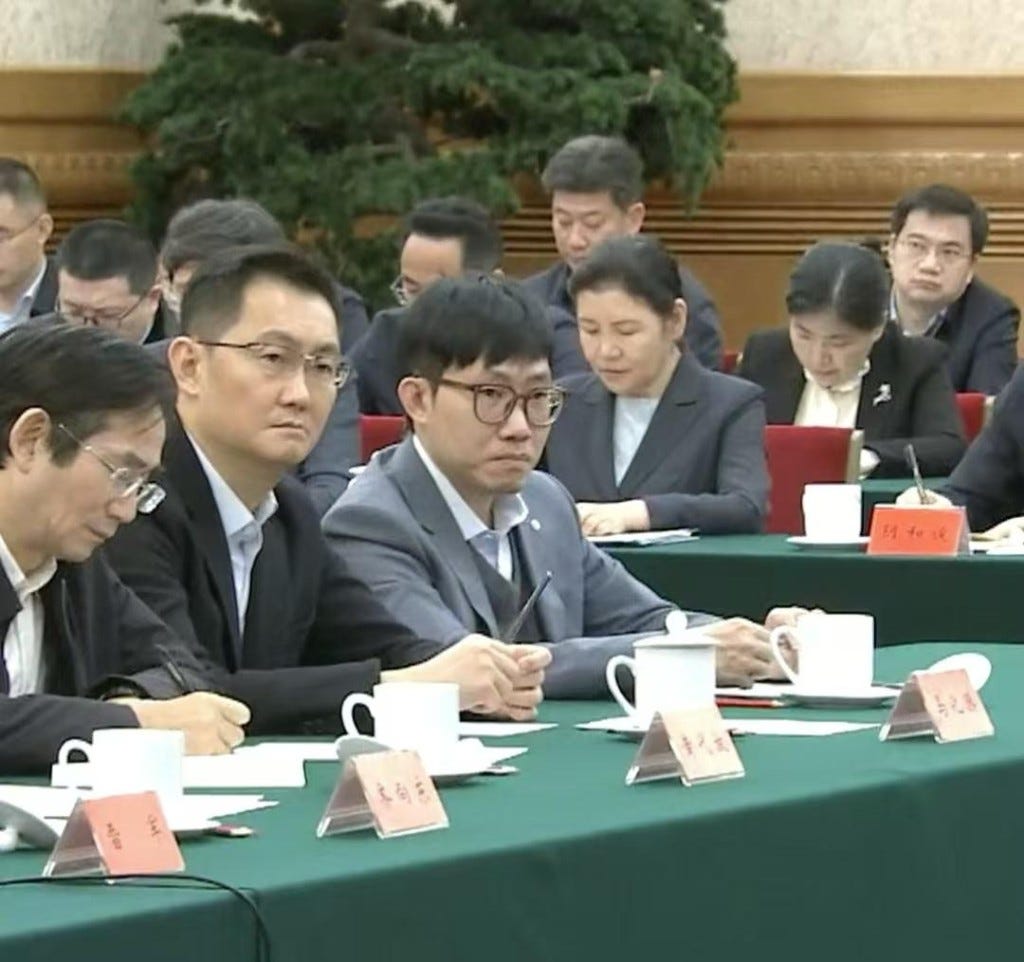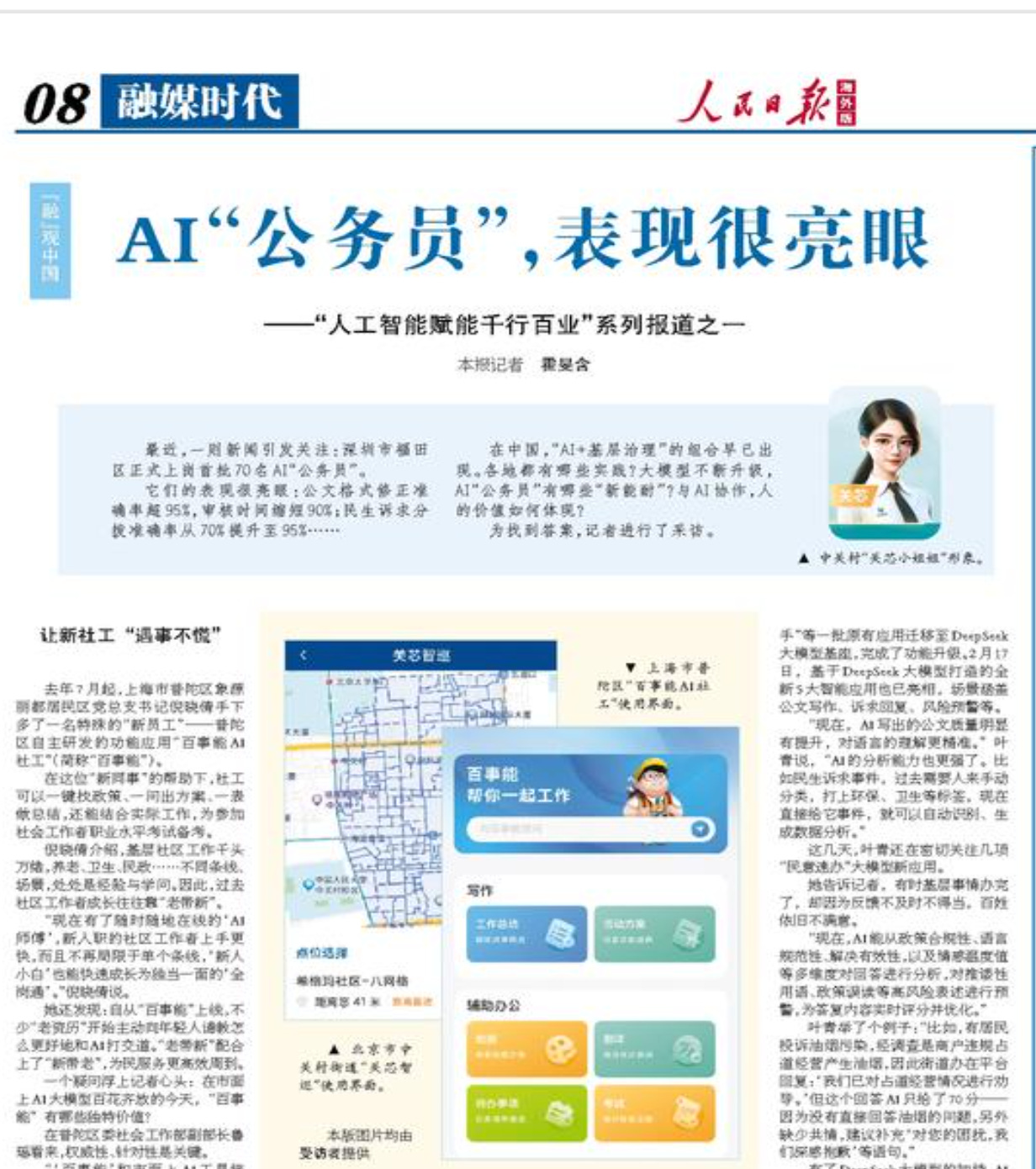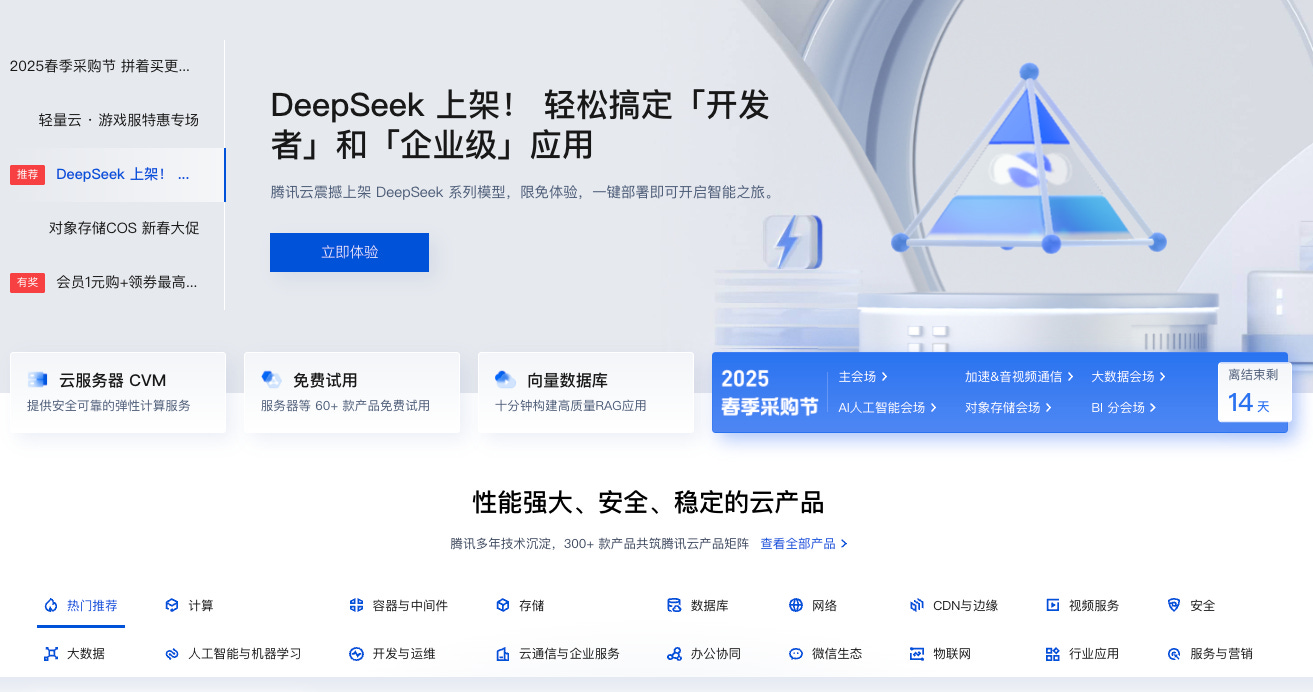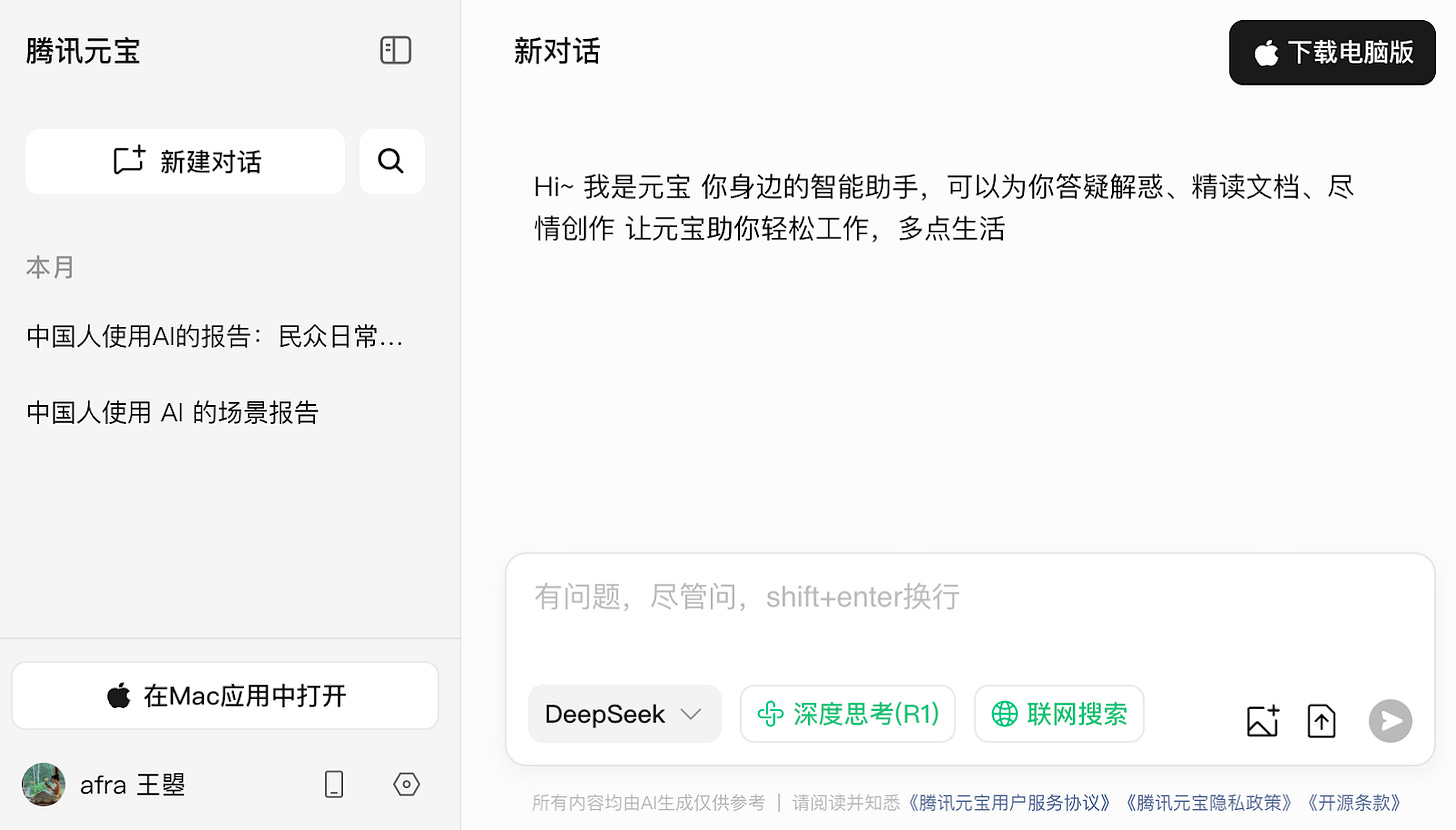DeepSeek and Tencent Bundle: Explained
How is DeepSeek's AI advancement playing out on the ground in China?
Two days ago, I was reading the introduction to historian Jonathan D Spence’s book “God's Chinese Son: The Taiping Heavenly Kingdom of Hong Xiuquan,” where the following sentences struck me hard:
Western perceptions of China remain infused with colonial attitudes and ineffable misconceptions—equal parts curiosity, contempt, and pity, with an undercurrent of "othering" hostility. When confronted with China's vast landscapes, enormous population, and ancient history, the mental images that arise exist in a liminal space between reality and fiction. China becomes a kaleidoscope containing everything imaginable, capable of endless reconfigurations.
Though these words described how the West imagined China decades ago, I see in them Silicon Valley's current vision of 2025 China. From Sam Altman's calls to ban DeepSeek to Ezra Klein and Derek Thompson's new book Abundance exploring China's model as a counterpoint to American progressives' "forgot how to build" paralysis, China functions as a mirror. In the intellectual circles that I observed, China has become the screen onto which Americans of all stripes—progressive thinkers, technologists, capitalists, and policymakers alike—project their anxieties and aspirations, revealing more about America's self-conception than about China itself.
Last Monday, I published this article about the DeepSeek and Tencent integration in the AI Supremacy newsletter, and I want to publish it here for visibility. In this piece, I mentioned:
OpenAI's formal proposal to ban DeepSeek—labeled as “state-subsidized” and “state-controlled”—reveals more about American anxieties than Chinese realities.
Since reading the seminal work AI Nationalism by Ian Hogarth, which was written eight years ago, I've been contemplating this framework—AI Nationalism heralding a new era of geopolitics driven by rapid advancements in AI. In some ways, America's hysteria over DeepSeek has directly elevated AI to the undisputed center of geopolitical discourse; American AI nationalism appears even more direct and exaggerated than China's version.
Two days ago, on March 24, DeepSeek dropped its V3 model in silence, claiming "a boost in reasoning performance, stronger front-end development skills, and smarter tool-use capabilities." Given this upgrade, understanding how Tencent and DeepSeek bundle—not just technically, but what it means at the national level and how the Chinese government uses AI—becomes crucial. In this article, I also shared some of my on-the-ground experiences in China: What does AI mean to the people in China? How do my Chinese friends and family view AI?
I appreciate Michael Spencer’s suggestion to write this piece and his thoughtful feedback. And don't forget to subscribe to AI Supremacy. I hope you enjoy this piece!

DeepSeek and Tencent Bundle: Explained
As DeepSeek and Manus have seemingly emerged from nowhere to threaten Silicon Valley's carefully constructed moats, the most revealing development isn't in benchmark scores but in how these technologies are being integrated into existing ecosystems. OpenAI's formal proposal to ban DeepSeek—labeled as "state-subsidized" and "state-controlled"—reveals more about American anxieties than Chinese realities.
Two months after DeepSeek's global debut, the rapid integration between DeepSeek and Tencent offers a window into how the Chinese technological ecosystem actually operates: not through monolithic state control as OpenAI suggests, but through state-mediated acceleration that creates powerful connections between intelligence capabilities and distribution channels.
The orchestrated dance: DeepSeek, Tencent, and the state
Some online commentary suggests that Chinese internet giant Tencent has emerged as the most nimble responder—and potentially the greatest beneficiary—of DeepSeek's success.1
The lightning-fast integration of DeepSeek and Tencent exemplifies Chinese technological efficiency at its finest. This state-facilitated acceleration promises to create a powerful multiplier effect between AI capabilities and established digital platforms. However, the state's role here differs from Sam Altman's fear-mongering portrayal of "controlling" oversight. Rather than direct control, what we observe is strategic coordination and implicit endorsement—a distinctively Chinese approach to technological development that Western analyses often mischaracterize.
Last month, on February 18th, we know that DeepSeek founder Liang Wenfeng appeared on CCTV sitting beside Tencent's Ma Huateng at Xi Jinping's symposium for top business leaders. In China's political visual language, such seating arrangements carry potent significance—akin to state certification or even endorsement.

The timing was hardly coincidental. Just one day before this high-profile symposium, Tencent's WeChat announced its partnership with DeepSeek. What followed was a cascade of integration: Tencent Cloud announced that more than ten of its products would fully incorporate DeepSeek's LLMs, spanning development tools, enterprise services, and consumer applications. Simultaneously, WeChat began gray-testing DeepSeek-R1 within its search function, incorporating content from official accounts and supporting social sharing.
Several analyses have already illuminated the significance of this partnership for China's tech landscape. But the implications run deeper. Through this symposium appearance, DeepSeek secured its place on the AI throne in national-level forums, earning the tacit blessing of the state apparatus. This blessing, however, comes with implicit expectations rather than explicit directives—a subtle distinction that OpenAI's proposal to the U.S. government conspicuously fails to acknowledge.
This integration effectively transformed DeepSeek into a nationally endorsed product from both technical and strategic perspectives. Overnight, it gained entry into a digital ecosystem with 1.3 billion user base—becoming what Chinese people call a "national-level" app. WeChat’s scale and its super-app model once inspired Mark Zuckerberg and Elon Musk’s "WeChat envy."2 Now, most users don't access DeepSeek through its official app (which constantly crashes) but rather through Tencent's multi-agent platform Yuanbao.
While facilitating DeepSeek's integration, Tencent advances quietly on multiple fronts. Its recent Hunyuan video generation model has garnered international praise specifically for its practical strengths. As one user noted on Reddit: "I was genuinely impressed by its remarkable speed... Hunyuan's standout advantage lies in its robust community support."
This alliance illustrates the unique complexity of relationships between Chinese private enterprises and the government—a dynamic that shifts between leveraging government power and maintaining calculated distance. Huawei offers an instructive parallel: as Eva Dou mentioned in a talk about her book House of Huawei, the company's "success stems from a hybrid model that combines strong state support with entrepreneurial drive." Yet historical evidence shows that early Huawei attempted to preserve independence, with founder Ren Zhengfei reportedly declining loan offers from China's then-Premier. Only after U.S. restrictions in the Trump administration did Huawei's relationship with the government grow increasingly close.
Under current geopolitical tensions, Chinese technology companies find themselves with precious little opportunity to shape their own narratives internationally. Facing intense scrutiny and persistent hostility, many are forced to identify as Chinese firms first, tech firms second. This external pressure has pushed entrepreneurs closer to the state out of necessity. Countries such as Australia, South Korea, and Italy banned the access to DeepSeek while it reveals some security vulnerabilities. As one tech consultancy told RestofWorld regarding TikTok's situation:
If you are a Chinese company, you are often guilty before proven innocent.
As Ivy Yang noted, DeepSeek's explosive reception in the Western world has paradoxically robbed it of the chance to define itself. Founder Liang Wenfeng's studied reticence and media avoidance have created a gray space where observers project their own understanding. This narrative vacancy functions as a mirror reflecting American anxieties: tech hawks see unstoppable Chinese AI ascendance, tech pundits see it threatens free speech, while capital markets see DeepSeek dismantling OpenAI's moats.
But for someone like me—straddling Chinese and American tech landscapes with one foot in each world—the DeepSeek-Tencent integration reveals a distinctly Chinese technological cartography. Here, the state doesn't merely regulate technology; it orchestrates development, deployment, and adoption in ways Western observers often misinterpret as either ominously authoritarian or admirably efficient. Neither characterization captures the complex reality.
DeepSeek in a Deeply Pragmatic Society
Beyond these high-level relationships, what's happening with DeepSeek on the ground tells an equally fascinating story.
In a previous article DeepSeek and Destiny: A National Vibe Shift, I mentioned how DeepSeek's emergence created a sensation among many people, fostering a feeling that "the world order is rapidly changing, and China's moment of destiny is approaching"—partially self-consolation, partially infused with genuine optimism about China’s position in the world. However, delving deeper into China, you'll find that DeepSeek is hardly a topic dominating everyday conversations. The observations from the ground shows fervent discussions and obsession with AI coexist alongside complete unawareness of it. Both realities are valid, equally true.
During the Chinese New Year holiday when DeepSeek made its splash, I crisscrossed the country for nearly a month. My journey took me from ultra-first-tier cities like Beijing and Shanghai to Hangzhou where DeepSeek was born, then inland to the third and fourth-tier cities in Shanxi province. Along the way, I spoke with my cousin (teaching urban planning in Xi'an), a friend leading business development at a state-owned steel company, a high school classmate working in Beijing's energy sector, and family members scattered across the landscape. These ordinary young professionals and middle-class citizens—China's supposed technological vanguard—hardly mentioned DeepSeek. Game-changer? Not on their everyday radar. This is just my snapshot, of course—one American-educated Chinese person's social circle. But it hints at how far AI must still travel before weaving itself into the daily rhythms of Chinese life.
Most telling was my conversation with a friend at a state-owned steel company who dismissed AI with a wave of his hand. "Manufacturing—that's the real game," he insisted, his voice carrying what I would call "Chinese bronze age manufacturing masculinity"—a value system where tangible production still outranks digital innovation. His attitude more or less echoed the seating arrangement at Xi's symposium for tech and business leaders—that carefully choreographed tableau of power and priority so quintessentially Confucian in its hierarchical design. The chart spoke volumes: Huawei, BYD, Xiaomi—companies forging tangible things—commanded the prime positions. Electric vehicles, consumer gadgets, renewable energy, 5G networks—these are the industries China's leadership truly values. This preference is reflected in the "Made in China 2025" plan, which emphasizes manufacturing as the core of China’s strategic plan. Meanwhile on the same table, Tencent and DeepSeek could only occupy positions at the periphery of this seating chart.

To offer more of my on-the-ground observations, Chinese patterns of DeepSeek usage reveal a different relationship with AI than what I see among tech-savvy Americans. Rather than philosophical exploration or technical fascination, the grassroots Chinese approach is marked by utilitarian opportunism—a "catch the wind and profit" mindset focused on immediate practical applications. DeepSeek's most enthusiastic adopters are not just tech elites but ordinary people seeking quick income. This isn't merely pragmatism but entrepreneurial urgency—a recognition that AI represents a fleeting market opportunity to be seized. Content creation represents another DeepSeek stronghold. Scroll through Chinese social media and you'll encounter a flood of AI-generated material—the carefully constructed captions, the too-perfect product reviews, the suspiciously well-structured travel guides. Influencers have embraced DeepSeek's language processing to churn out scripts and posts at unprecedented speeds, leaving my timeline awash with content bearing strong synthetic flavors. Meanwhile, a parallel economy has emerged around "DeepSeek 101" tutorials teaching ordinary users how to transform simple prompts into cash flow.
On Xiaohongshu, people discuss how to use DeepSeek as a social intelligence amplifier, helping users navigate China's high-context, face-conscious society. Young professionals tap its capabilities to craft diplomatic work messages, perfect WeChat replies to their boss's cryptic messages, or formulate graceful rejections to unwanted social obligations. The platform has become an emotional intelligence coach for a generation facing relentless social pressure.
Perhaps most fascinating is DeepSeek's role as digital fortune teller. Users feed it birth dates and personal details, seeking insights about fate, compatibility, and future prospects—a technological revival of ancient divination practices. Caiwei Chen documented this phenomenon in a fascinating report on China's AI oracles.
The professional realm shows differences, too. While American developers publicly celebrate "vibe coding" with AI tools, their Chinese counterparts operate with more discretion and reservation. They prefer shadow arrangements—"DeepSeek+Cursor combinations" deployed quietly in the background. I recently read about China's "shadow AI" confirmed what I've long suspected: in China’s big tech companies, AI coding assistance has become an open secret. Unlike the American tech scene with its abundance of "super devs" doubling as influencers and thought leaders, China's programming culture fosters a heads-down approach. To be clear, China's tech professionals also celebrate AI's potential to automate coding and improve work efficiency, but the environment lacks vibrant discussions and debates around trendy concepts like "vibe coding," which is seen as a pivotal shift in the nature of work. For many Chinese coders, AI represents tools to help them meet intense corporate output pressures.
Municipal Government Adoption
Local governments across China have embraced DeepSeek with characteristic pragmatism—approaching AI as a tool rather than a revolution. The adoption pattern reveals a fascinating duality: on the one hand, genuine administrative efficiency; on the other, technological theater playing out across provinces. As municipalities compete to showcase their AI credentials, adoption metrics become badges of progressive governance in a distinctly Chinese blend of innovation and performance.

Shenzhen's Futian district exemplifies this approach, deploying 70 "AI civil servants" powered by DeepSeek to handle everything from document processing to emergency response and investment promotion. This model has triggered a cascade effect throughout the country. According to the report, in the Yangtze River Delta region alone, cities like Nanjing, Wuxi, Hangzhou, and Shanghai's Pudong district have all announced localized DeepSeek deployments, primarily focusing on document processing applications. The landscape is now dotted with "AI virtual humans" and "digital government assistants"—some substantive, others resembling the showy joint ventures between tech companies and bureaucracies that have characterized previous innovation waves. What matters isn't always functionality but participation in the race itself. Hangzhou, as birthplace to both DeepSeek and robotics company Unitree, has emerged as the model other municipalities aspire to emulate, further accelerating resource allocation toward AI initiatives.
The contrast with American adoption is interesting: according to this Pew research, US state governments show dramatically varied approaches—some aggressively pursuing AI implementation while others proceed with elaborate caution and ethical frameworks. Approximately 8% remain in the earliest exploratory stages, still developing basic AI literacy within government ranks. This disparity doesn't simply reflect different technological capabilities but fundamentally divergent approaches to innovation governance.
While American discourse about AI often oscillates between utopian technological determinism and dystopian fears of job displacement, the Chinese approach I've observed is grounded—focused on utility rather than grand philosophical implications.
As AI technology splits along geopolitical lines, we need to actually understand what's happening on the ground, not just repeat the binary talk such as ”American democratic AI good and Chinese authoritarian AI bad.” The real danger isn't Chinese tech getting better—it's that misunderstandings like those in OpenAI's proposal might shut down chances for different approaches.
To extend this part: Tencent's aggressive speed is embedded in the company's DNA. In 2014, when mobile payments were just emerging in China, Jack Ma's Alibaba, built on the mature Taobao e-commerce platform, positioned Alipay as the undisputed forerunner. Yet during Chinese New Year, Tencent launched what Ma could only describe as a "Pearl Harbor attack." Similar to DeepSeek's understated product announcements, WeChat—without fanfare and despite its initially slow WeChat Pay adoption—introduced a "red envelope" feature allowing users to shake their smartphones for a chance to win digital red envelopes. The campaign proved phenomenally successful: over half a billion RMB worth of red envelopes changed hands, with 1.2 billion envelopes distributed. This promotion dramatically expanded WeChat Pay's user base from 30 million to 100 million users in just one month.
In 2019, Zuckerberg aimed to transform Facebook by following WeChat's super-app model, seeking to expand beyond social networking into integrated financial transactions and retail services. Similarly, Elon Musk later expressed his desire to turn X into a WeChat-like platform.




